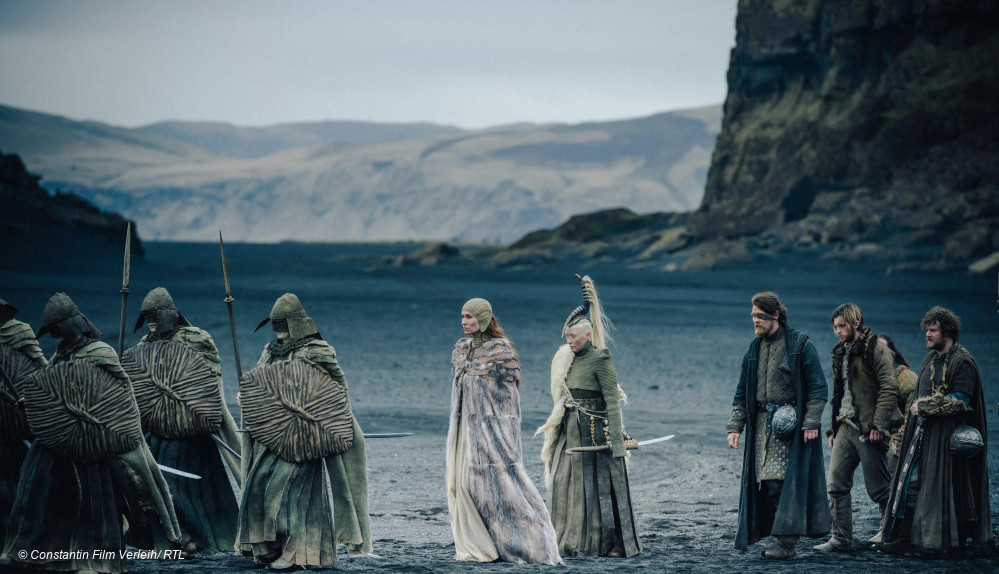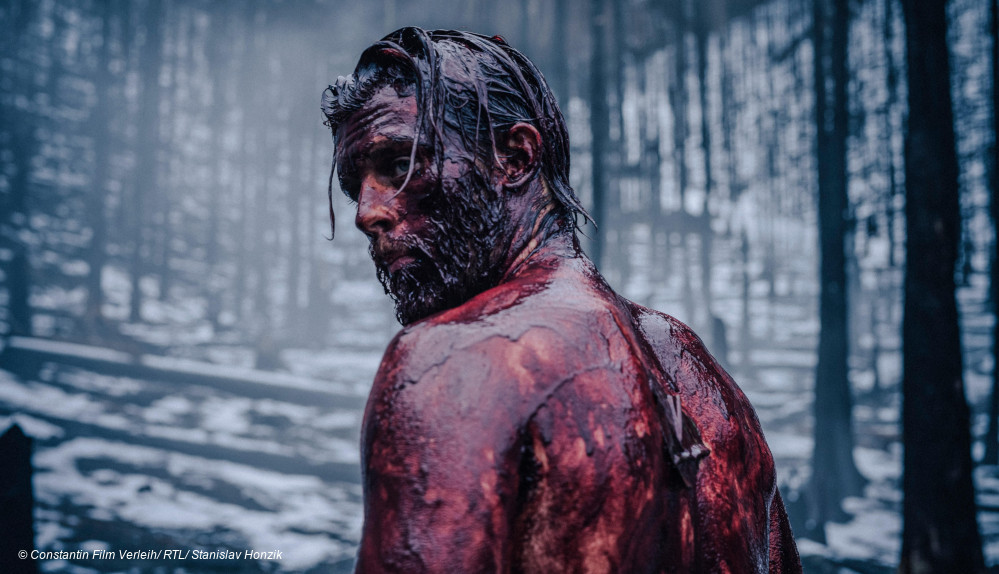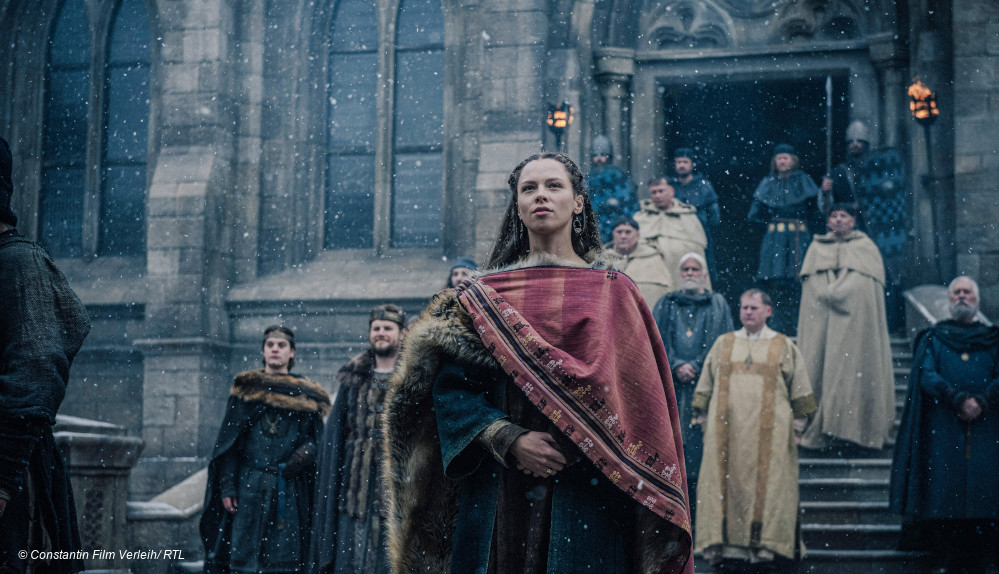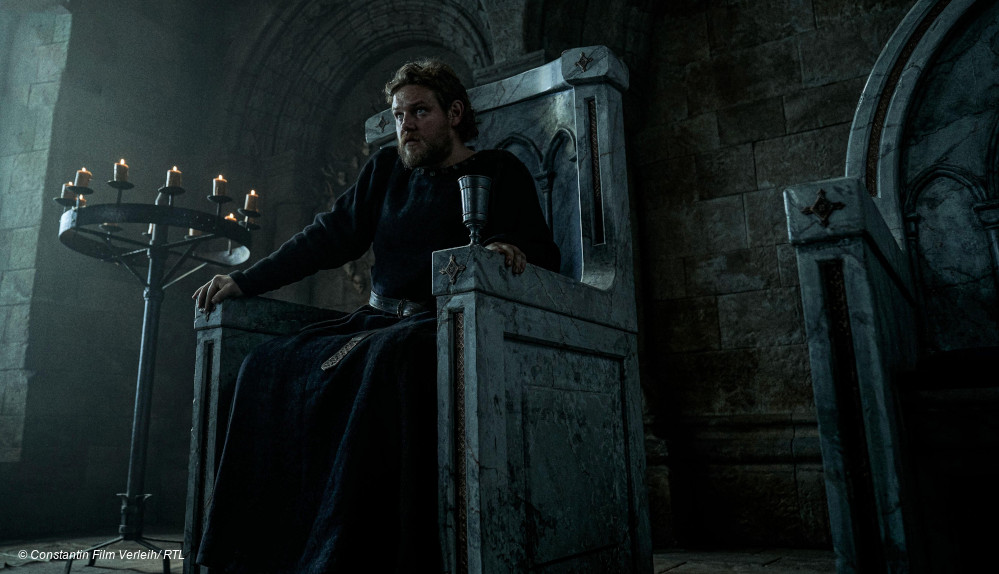“Hagen – In the Valley of the Nibelungen” retells the Nibelungen saga. The film has been in cinemas since Thursday, but the wait for the series version seems to be more worth it.
There have been significantly worse attempts to manage such a prestigious project. “Hagen” is produced on a technical level that you don’t see every day in contemporary German cinema. Filmed in Prague and the surrounding area as well as in Iceland, this fantasy epic is lavishly decorated, staged in appropriately rough, enormous landscapes, dark, dim rooms and musically accompanied by a varied orchestral score. The trip to Iceland, where the legendary Valkyries live in rocks and ice and a volcano breathes fire in the background, is particularly visually impressive.
So everything screams for the big screen epic about the oh-so-dark times in which power-hungry kings and mythical creatures coexist and maneuver each other into bloody conflicts. But above all, “Hagen – In the Valley of the Nibelungen” is convincing because, although in his fantasy Middle Ages he delves into dirt, blood and darkness with childlike joy, he does not do so in the stupidly lurid and self-serving way that Robert Eggers does in his historical film “The Northman” did. Nevertheless, you leave the cinema with a certain disappointment.


“Hagen” is now running in cinemas and as a series event in 2025
“Hagen” falls short of expectations because after watching it, the question inevitably arises as to whether Constantin Film and RTL’s exploitation strategy was really such a good idea. First the movie, then the series. What is currently playing in theaters with a running time of just over two hours seems to be a shortened version of the project. “Hagen” is planned for 2025 as a six-episode event series Streaming service RTL+ announced. It is currently unknown whether the format will also make it onto RTL television linearly. In any case, it explains why “Hagen” sometimes feels so hectic in the cinema, but also awkward in its constantly starting and breaking off arcs of tension.
It is not the Middle High German Nibelungenlied that is adapted here, but the “Hagen of Tronje” novel by Wolfgang Hohlbein. The adaptation of an adaptation. Hohlbein made the famous murderer of Siegfried the Dragon Slayer the main and title hero. His version of the story and the change in perspective take his own look at the iconic material and sometimes deviate from the historical source.
“Hagen” begins with Gunter’s (Dominic Marcus Singer) accession to the throne in Worms. But the crown will soon be disputed again. Siegfried von Xanten, portrayed by Jannis Niewöhner as a muscular egotist and rebel with a rock star attitude, comes to the castle and challenges the king before they both become allies. Battles are fought. The Burgundian Empire should be defended against invaders, the Huns. In order to secure their power, the men eventually travel to Iceland to capture the Valkyrie Brunhild (Rosalinde Mynster). Through it all, Hagen (Gijs Naber) is the loyal companion, advisor and silent observer before he becomes involved in the fateful intrigue against the former dragon slayer.


Too much plot in too little running time
The problem begins with the fact that (at least in this theatrical version) one of the palest and most uninteresting characters is made the main character. Because this Hagen von Tronje, the one-eyed man, is exactly that most of the time: a quiet, taciturn observer. Every now and then, scraps of his past are touched upon. Likewise his double-edged relationship with Siegfried, which oscillates between fascination and disgust. Maybe there’s even a repressed homosexual component lurking there!
But in just over two hours of running time, this relationship cannot be adequately captured and formulated when there is so much plot to tell and so many characters to introduce at the same time. The love triangle between Siegfried, Kriemhild (Lilja van der Zwaag) and Brunhild and the court intrigues that follow remain more of a sketch than a portrait. Above all, however, the political discourse, which is negotiated despite all the spectacle and show value, clearly falls by the wayside.


The burden of the Nibelungen story
The Nibelungen saga is a German national epic that has been taken up many times. Richard Wagner composed his masterful opera cycle from it, which is still often performed today. Directors like Fritz Lang and Uli Edel have brought the material to the screen and TV screens. Politically he was abused and exploited by the National Socialists. The reception history of the historical original is extremely interesting, extremely profound and complicated. You can’t actually make a Nibelungen film at the beginning of the 21st century without thinking about this story or relating to it.
What “Hagen” does politically with it always reveals interesting highlights. Because this is also a geopolitical constellation and question that arises as to how boundaries are drawn between civilizations and empires and how enemy images are created. The courtly intrigues bring about their own downfall, which is known from the original but which is (still?) left out in this version. Alliances are made, sometimes with magic and deceit. At the same time, there is a fear that allies will become icons and attract the favor of the population while others struggle with the burden of power. At the same time, there are questions about military detention and the compulsion to take up arms. People are forced to defend themselves.


“Hagen” lacks the space to develop
These are incredibly inflated topics and loaded emotive words. You feel that there is something lurking there that has to do with our present. It could result in an explosive update of the historical heroic epic. But these approaches may simply never be fully realized in cinema. They remain hidden, only appearing briefly before the hot-headed montage shifts them back to the next plot point and postpones them. Especially since the pale characters, their appearances and demeanors and their dialogues never exude the artfully theatrical pathos that a format like “House of the Dragon” popularly achieves.
“Hagen” ultimately lacks the air to breathe. This story needs space to unfold. The film is too short and packed to contain any real tangible substance and bring its characters and conflicts to life. Of course, one can only speculate, fear and hope that a six-part version will provide that space. It also hurts to advise against going to the cinema. The longing for German genre cinema beyond problem drama and relationship comedy is often unnecessarily made into a fetish. But it is big for many people.
And as I said: “Hagen” is a major fantasy project that rarely hits theaters with such high production standards. But you notice that something is not right. That there is actually and obviously only an appetite stimulant to see here. Given their dimensions, Hagen and the Nibelungen saga simply need a more detailed, larger form.
“Hagen” has been running in German cinemas since October 17th, distributed by Constantin Film, and as a series event in 2025 RTL+.
Notice: Some links are affiliate links. If you purchase via this link, DIGITAL TELEVISION receives a small commission. This has no effect on the price.
Source: www.digitalfernsehen.de


